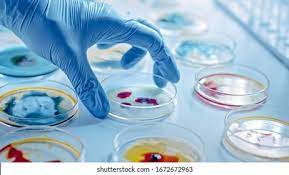

Pharmaceutical Microbiology is the study of the particular microorganisms involved in the design, scalability, and production of pharmaceuticals as well as the following reduction or eradication of their numbers in a process environment. The study and development of anti-infectives, the use of microorganisms to screen potential medications for mutagenic and carcinogenic activity, and the use of microorganisms in the production of pharmaceuticals like insulin and human growth hormone are all additional facets of pharmaceutical microbiology.
Pharmaceutical Microbiology Involves
Pharmaceutical Biotechnology
Pharmaceutical biotechnology is a fresh and expanding field in which the biotechnological principles are used to create pharmaceuticals. Vaccines, nucleic acid products, and antibodies are examples of bioformulations that make up the bulk of therapeutic drugs on the market today. Understanding the fundamental molecular mechanisms governing the function of related biomolecules, their synthesis and purification, evaluation of the product's shelf life, stability, toxicity, and immunogenicity, development of drug delivery systems, patenting, and clinical trials are all steps in the development of such bioformulations.